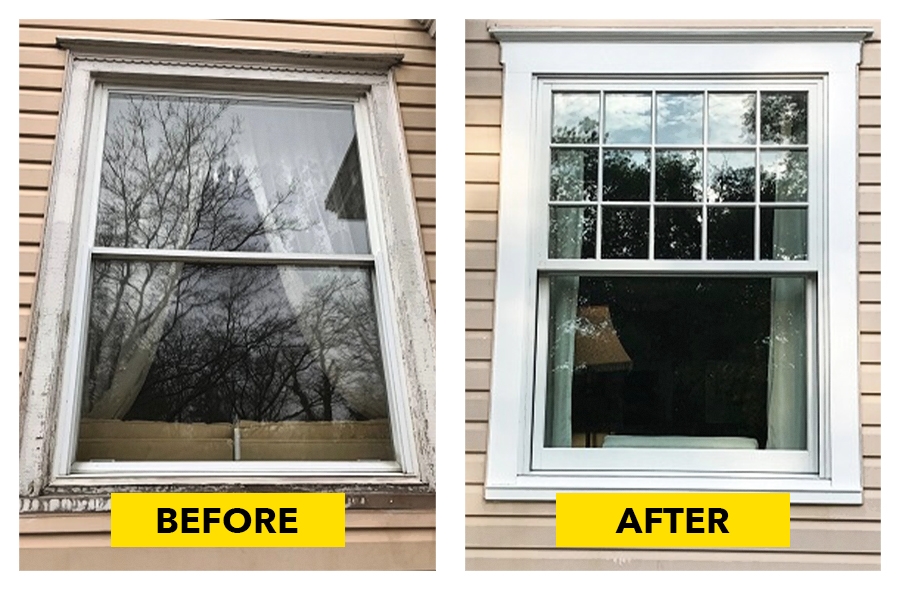Upgrade Your Home With Energy-Efficient Home Window Replacements
In the realm of home renovation, the decision to upgrade to energy-efficient window substitutes can considerably influence both the performance and aesthetics of a house. Beyond the surface area degree of simple appearances, energy-efficient windows offer a multitude of advantages that go beyond simple aesthetic appeal.
Benefits of Energy-Efficient Windows

The setup of energy-efficient home windows offers considerable savings on energy costs while enhancing environmental sustainability. Additionally, energy-efficient windows can help manage wetness levels within the home, minimizing the risk of mold and mildew and mildew growth.
Beyond the financial benefits, energy-efficient home windows add to ecological sustainability by lowering carbon emissions associated with energy production. In general, spending in energy-efficient home windows not just enhances the convenience and efficiency of a home however likewise straightens with environmentally mindful techniques.
Types of Energy-Efficient Glass
Different advanced types of energy-efficient glass deal unique residential or commercial properties that provide to various needs and choices in boosting the sustainability and efficiency of buildings. Triple-pane glass, being composed of 3 layers of glass with shielding gas between them, gives boosted thermal insulation, making it very energy-efficient. Additionally, self-cleaning glass with an unique covering that breaks down and loosens up dust when revealed to sunlight can decrease maintenance demands and maintain windows looking clean.
Elements to Think About When Picking
When considering energy-efficient window replacements, it is necessary to thoroughly evaluate details elements that align with your sustainability objectives and desired power savings. One crucial element to take into consideration is the home window's power efficiency rankings, such as the U-factor and Solar Warmth Gain Coefficient (SHGC) The U-factor measures how well the home window shields, with lower numbers showing far better insulation, while the SHGC suggests the window's ability to obstruct heat from sunlight. Additionally, the window frame material plays a considerable duty in power effectiveness. Materials like fiberglass, vinyl, or timber with thermal breaks are excellent choices for decreasing heat transfer. An additional essential factor to consider is the window style and positioning concerning sunshine direct exposure. Selecting the right window design and purposefully positioning them can take full advantage of natural light while minimizing warmth gain or loss. Last but not least, installation quality is key to making certain the home windows carry out as intended. Correct setup assists prevent air leak, guaranteeing optimal power effectiveness. By very carefully assessing these factors, you can choose energy-efficient windows that boost comfort, reduce power costs, and profit the environment.
Setup and Upkeep Tips

Normal upkeep is crucial to maintaining the efficiency of your energy-efficient windows. Examine the home windows periodically for any kind of indicators of wear, damages, or sealant wear and tear. Tidy the structures, tracks, and glass frequently utilizing light soap and water to get rid of dirt and grime that can influence efficiency. Inspect the weather-stripping and seals important source for any splits or gaps and change them if needed to maintain the home windows' energy effectiveness.
Furthermore, lube relocating parts such as locks and hinges to make certain smooth operation. By following these installment and maintenance ideas, you can improve the power efficiency of your home and extend the lifespan of your energy-efficient windows.
Cost-Benefit Evaluation of Updating

Energy-efficient windows are designed to minimize warmth transfer, lowering the requirement for heating and cooling systems to function overtime. This can bring about substantial financial savings on energy bills, specifically in areas with extreme temperatures. Furthermore, energy-efficient windows can enhance the total value of your home, making it more eye-catching to prospective buyers if you determine to market in the future.
When determining the cost-benefit analysis, consider the prospective savings on power bills, any type of available motivations or refunds, and the lifespan of the home windows. While the initial price may be greater, the long-lasting cost savings and benefits of energy-efficient windows make them a smart investment for home owners looking to improve their property's power effectiveness and worth.

Conclusion
Finally, upgrading to energy-efficient home window replacements find more info uses numerous benefits such as decreased energy intake, increased convenience, and price savings. By picking the appropriate kind of energy-efficient glass and considering elements like structure material and setup, home owners can optimize the performance of their windows. Routine upkeep and proper setup are crucial for long-term efficiency. On the whole, the cost-benefit analysis of upgrading to energy-efficient home windows reveals that the preliminary financial investment can lead to significant cost savings over time.
When considering energy-efficient home window substitutes, it is imperative to carefully assess particular aspects that straighten with your sustainability purposes and wanted power savings. The U-factor measures how well the window protects, with reduced numbers showing better insulation, while the SHGC indicates the home window's capacity to block warm from sunshine. By meticulously examining these variables, you can select energy-efficient home windows that improve convenience, lower power prices, and benefit the atmosphere.
While energy-efficient home windows might have a greater upfront cost compared to conventional home windows, the lasting advantages frequently exceed the preliminary financial investment.In conclusion, upgrading to energy-efficient home window substitutes supplies numerous benefits such as minimized power usage, enhanced comfort, and price savings.